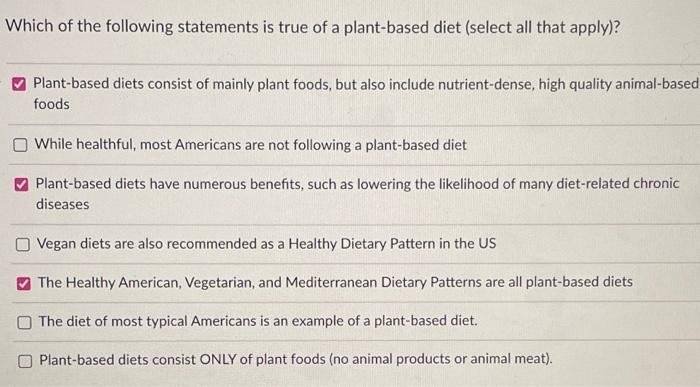Which of the Following is Not a Short-Term Fitness Goal? Improving overall cardiovascular health is not a short-term fitness goal.
Setting short-term fitness goals helps you stay motivated and track progress. These goals are achievable within a few weeks or months. They can include losing a few pounds, running a mile without stopping, or completing a workout routine consistently. Short-term goals provide a sense of accomplishment and keep you focused.
They act as stepping stones towards larger, long-term objectives. Short-term goals are crucial for maintaining enthusiasm and building healthy habits. They are specific, measurable, and time-bound, making it easier to monitor and adjust your fitness plan. Overall, short-term fitness goals play a vital role in maintaining your commitment and achieving long-term success.

Credit: oylfitness.com
Introduction To Short-term Fitness Goals
Setting short-term fitness goals can help you stay motivated. These goals are small, achievable targets. They are designed to keep you on track. Short-term goals are usually set for a few weeks or months. They are stepping stones to long-term success. But not all fitness goals are short-term. Some goals require more time and effort.
The Concept Of Short-term Goals In Fitness
Short-term goals are specific and measurable. They help you see progress quickly. These goals can improve your health and fitness. Short-term goals are easier to achieve. They keep you motivated and focused. Setting clear, short-term goals is essential.
Common Short-term Fitness Objectives
- Lose a few pounds in one month.
- Run a 5K within six weeks.
- Improve flexibility by doing daily stretches.
- Increase strength with weekly weight training.
- Enhance endurance by adding cardio sessions.
| Short-Term Goal | Duration |
|---|---|
| Lose 5 pounds | 1 month |
| Run a 5K | 6 weeks |
| Improve flexibility | Daily |
| Increase strength | Weekly |
| Enhance endurance | Weekly |
Not all goals fit into the short-term category. Goals like running a marathon, building significant muscle mass, or losing a large amount of weight are long-term. These require more time and dedication. So, which of the following is not a short-term fitness goal? The answer lies in understanding the time and effort each goal demands.
Characteristics Of Effective Short-term Goals
Setting effective short-term fitness goals can keep you motivated. These goals should be clear and achievable. They should also be measurable. This helps track your progress.
Effective short-term goals have specific characteristics. They follow the SMART criteria. They also consider the importance of timeliness.
Smart Criteria For Fitness Goals
SMART stands for Specific, Measurable, Achievable, Relevant, and Time-bound. Let’s break down each component:
- Specific: Goals should be clear and detailed. For example, “I will run 2 miles without stopping.”
- Measurable: You should track your progress. For example, “I will measure my running time.”
- Achievable: Goals should be realistic. For example, “I will not aim for a marathon if I am a beginner.”
- Relevant: Goals should align with your fitness level. For example, “I will run because I want to improve my cardio.”
- Time-bound: Goals should have a deadline. For example, “I will run 2 miles within 2 weeks.”
The Role Of Timeliness In Short-term Goals
Timeliness is crucial for short-term goals. A clear deadline helps you stay focused. It also creates a sense of urgency.
Short-term goals are usually set for a few weeks to a few months. They should fit within this time frame. This helps you see quick results.
Below is a table showing examples of short-term goals:
| Goal | Time Frame |
|---|---|
| Lose 5 pounds | 1 month |
| Run 2 miles | 2 weeks |
| Complete 10 push-ups | 3 weeks |
Short-term goals keep you motivated. They help you achieve long-term success. Setting clear and timely goals is key.
Typical Misconceptions About Fitness Goals
Many people set fitness goals without understanding the difference between short-term and long-term objectives. This can lead to confusion and frustration. Let’s explore some common misconceptions about fitness goals.
Confusing Long-term Aspirations With Short-term Goals
Many individuals mistake long-term aspirations for short-term goals. For example, aiming to lose 50 pounds is a long-term aspiration. This is not achievable within a few weeks. Short-term goals should be more immediate and realistic.
| Long-Term Aspiration | Short-Term Goal |
|---|---|
| Run a marathon | Run 5 miles a week |
| Lose 50 pounds | Lose 2 pounds a week |
| Build muscle mass | Workout 3 times a week |
Breaking down long-term goals into smaller, short-term objectives is crucial. This approach keeps you motivated and on track.
Overestimating The Impact Of Immediate Actions
Another common mistake is overestimating the impact of immediate actions. People often believe that a single workout or one healthy meal will show instant results. This is far from the truth.
- It takes time for the body to adjust.
- Consistency is the key to success.
- Short-term actions should be part of a long-term plan.
For example, expecting to see abs after one week of exercise is unrealistic. Short-term goals should focus on creating habits rather than expecting quick results.
Here are some realistic short-term goals:
- Drink 8 glasses of water daily.
- Walk 10,000 steps each day.
- Include vegetables in every meal.
These small steps contribute to long-term success and help avoid disappointment.
Identifying Non-short-term Goals
Many people set fitness goals, but not all are short-term. Understanding the difference helps in achieving realistic outcomes. Let’s explore which goals are not short-term.
Long-term Commitments Disguised As Short-term Goals
Some goals seem short-term but require long-term commitment. These goals include:
- Building significant muscle mass
- Losing a large amount of weight
- Training for a marathon
Building significant muscle mass takes months or even years. This involves consistent workouts and diet adjustments. Losing a large amount of weight is also a long-term goal. Safe weight loss happens slowly, about 1-2 pounds per week. Training for a marathon requires months of preparation. It includes building endurance and following a strict training plan.
Lifestyle Changes Vs. Quick Fixes
Short-term goals can include quick fixes, but lifestyle changes are different. Examples of lifestyle changes include:
- Adopting a balanced diet
- Maintaining a consistent exercise routine
- Improving mental health through mindfulness
Adopting a balanced diet is not a short-term goal. It involves changing eating habits for life. Maintaining a consistent exercise routine requires ongoing effort. It is not a goal that can be achieved in a few weeks. Improving mental health through mindfulness also takes time. It involves regular practice and dedication.
| Short-Term Goals | Long-Term Goals |
|---|---|
| Lose 5 pounds | Lose 50 pounds |
| Run 5K | Run a marathon |
| Learn a new exercise | Build significant muscle mass |
Case Studies: Successes And Failures
Understanding short-term fitness goals is crucial for achieving success. Let’s explore real-life case studies to see what works and what doesn’t. We’ll analyze both success stories and common pitfalls. This helps in distinguishing which goals are effective in the short term.
Analyzing Success Stories
Successful fitness journeys offer valuable insights. Here are a few examples:
- Weight Loss: Jane aimed to lose 5 pounds in a month. She followed a balanced diet and exercised daily. Her short-term goal was specific, measurable, and achievable. She succeeded and felt motivated to set new goals.
- Running a 5K: Mark wanted to run a 5K in 8 weeks. He started with short runs and gradually increased the distance. His goal was realistic and time-bound. He completed the 5K and improved his fitness.
- Strength Training: Emily aimed to increase her bench press by 10 pounds in 6 weeks. She followed a structured workout plan. Her goal was specific and measurable. She achieved it and felt stronger.
Learning From Common Pitfalls
Many people set fitness goals but fail to achieve them. Here are some common pitfalls:
- Unrealistic Goals: John wanted to lose 20 pounds in a week. This goal was unrealistic and unsafe. He felt discouraged and gave up.
- Lack of Planning: Sarah aimed to run a marathon without a training plan. She got injured and couldn’t continue. Proper planning is essential for success.
- Ignoring Recovery: Mike wanted to build muscle quickly. He skipped rest days and overtrained. This led to burnout and injury. Recovery is key to achieving fitness goals.
By learning from these successes and failures, you can set effective short-term fitness goals. Avoiding common pitfalls helps in staying motivated and achieving better results.

Credit: oylfitness.com
Setting Realistic Expectations
When embarking on a fitness journey, it’s crucial to set realistic expectations. Many people get discouraged by not achieving quick results. Recognizing the difference between short-term and long-term goals helps maintain motivation and focus.
Avoiding The Trap Of Instant Results
Instant results are often a myth. The human body needs time to adapt to new routines. Expecting immediate changes can lead to frustration. This can cause many to abandon their fitness plans.
Short-term goals should be achievable and specific. For example:
- Increase daily water intake
- Walk 10,000 steps daily
- Attend three workout classes weekly
These goals provide measurable progress without the pressure of instant transformation.
The Importance Of Patience And Consistency
Patience and consistency are key to fitness success. Small, consistent efforts yield significant results over time.
Consider the following:
| Action | Short-Term Goal | Long-Term Goal |
|---|---|---|
| Running | Run for 15 minutes without stopping | Complete a 5K race |
| Strength Training | Increase weight by 5 lbs | Double current lifting capacity |
By focusing on daily habits, you build a strong foundation for long-term success. Remember, fitness is a marathon, not a sprint.
The Psychological Impact Of Goal Setting
Setting fitness goals can have a significant impact on your mental state. It can be both motivating and challenging. Understanding the psychological aspects of goal setting is essential for success.
Motivation And Mental Well-being
Having clear goals can boost your motivation. You feel a sense of purpose and direction. Achieving small goals builds confidence. This positive reinforcement improves your mental well-being.
A study in the Journal of Health Psychology found that goal setting enhances self-efficacy. This means you believe in your ability to succeed. This belief is crucial for long-term success.
Dealing With Setbacks And Plateaus
Not all goals are achieved easily. You may face setbacks and plateaus. These challenges can be discouraging. It’s important to stay resilient and adapt your approach.
Consider creating a list of strategies for overcoming obstacles:
- Break down big goals into smaller steps
- Seek support from friends or a fitness coach
- Adjust your goals based on your progress
Staying flexible and positive helps you navigate these challenges. Remember, setbacks are a part of the journey. They offer valuable learning opportunities.
Redefining Short-term Fitness Goals
Setting short-term fitness goals is essential. These goals motivate and guide progress. But, not all goals qualify as short-term. Some goals need time and patience. Let’s explore how to define and adapt these goals.
Incorporating Flexibility In Goal Setting
Flexibility in goal setting is crucial. Life is unpredictable, and rigid goals may fail. Short-term goals should adjust to changing circumstances. This way, you stay on track even with setbacks.
Consider these flexible goals:
- Walk 10,000 steps daily.
- Drink 8 glasses of water daily.
- Perform 15 minutes of stretching exercises.
These goals are adaptable. They don’t require major life changes. You can adjust them based on daily activities.
Adapting Goals To Individual Progress
Each person progresses differently. Goals should reflect individual capabilities and improvements. Evaluating progress helps in setting achievable short-term goals.
Here are ways to adapt goals:
| Initial Goal | Adapted Goal |
|---|---|
| Run 5 km in 30 minutes. | Run 5 km in 35 minutes. |
| Lift 50 kg weights. | Lift 40 kg weights. |
These adapted goals consider current abilities. They are more realistic and achievable.
Remember to celebrate small victories. Small successes lead to bigger achievements. Keep goals flexible and adaptable for better progress.
Conclusion: Embracing The Fitness Journey
Embarking on a fitness journey is an empowering decision. It’s more than just achieving short-term goals. It’s about creating a sustainable lifestyle that promotes overall well-being. Let’s explore how to embrace this journey fully.
Summarizing Key Takeaways
Throughout this blog, we’ve examined various fitness goals. Some are short-term, while others require a long-term commitment. Understanding the difference is crucial for setting realistic expectations. Here are the key points:
- Short-term fitness goals include losing a few pounds, running a 5K, or improving flexibility.
- Long-term fitness goals involve significant changes such as building muscle mass or running a marathon.
- Setting achievable goals is essential for maintaining motivation and progress.
By focusing on both short-term and long-term objectives, you can create a balanced fitness plan.
Encouraging Sustainable Fitness Practices
To sustain your fitness journey, consider adopting these practices:
- Create a routine: Consistency is key. Schedule regular workout sessions.
- Mix it up: Incorporate various exercises to keep things interesting.
- Listen to your body: Rest when needed to prevent injuries.
- Set realistic goals: Aim for achievable milestones to stay motivated.
- Seek support: Join a fitness group or find a workout buddy.
These practices help in maintaining a healthy and enjoyable fitness routine.
Remember, the journey is just as important as the destination. Embrace each step and celebrate your progress.
Conclusion
Understanding fitness goals is crucial for success. Short-term goals keep you motivated and focused. Long-term goals ensure sustained progress. Choose goals wisely to maintain a balanced and effective fitness journey. Always tailor your fitness plan to meet both short-term and long-term aspirations.
Stay committed and enjoy the benefits of a healthier lifestyle.

Credit: www.amazon.com
Frequently Asked Questions about Which of the Following is Not a Short-Term Fitness Goal?
What Is A Short-term Fitness Goal?
- A short-term fitness goal is achievable within a few weeks or months.
How Do I Set Short-term Fitness Goals?
- Set specific, measurable, achievable, relevant, and time-bound (SMART) goals.
Can Weight Loss Be A Short-term Goal?
- Yes, weight loss can be a short-term goal if it’s realistic and healthy.
Are Daily Step Counts Short-term Goals?
- Yes, daily step counts can be considered short-term fitness goals.
Is Running A Marathon A Short-term Goal?
- No, running a marathon typically requires long-term preparation and training.

















